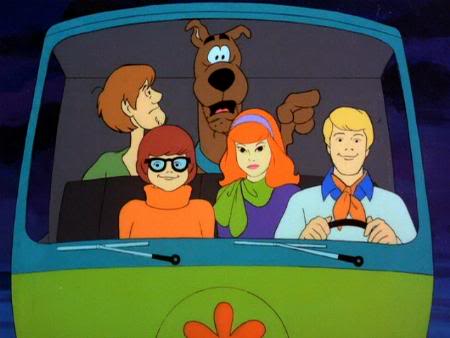Drove hundreds of miles through some very rural New England, USA today. Most areas were very nice with well kept homes and cute, small city centers (mostly only a couple of brick, commercial buildings).
What do people do for jobs out in the “middle of nowhere”? As an engineer who works closer to city areas where more jobs exist, I just can’t fathom what people are doing for jobs out there? How is everything paid for?
Edit: I should clarify there’s minimal farm land out in rural New England. So, not very many farmers at all.
A lot of people don’t work (retired, married a bread winner, or students living off mom and dad).
And there are of course telecommuting jobs now.
And even rural areas have doctors, dentists, plumbers, electricians, gas stations, delivery services, daycare, schools, libraries, churches, post offices, and countless other “invisible” employers that are easy to forget about when you live in a metropolitan city with dozens or hundreds of major corporate employers.
There’s also truckers with over the road/long haul jobs. You and you family can live anywhere when your job is to drive across the country.
Removed by mod
I live in a kinda small Norwegian town. I work full time as a developer with remote access to the customer. My office is ~5-6 hours away, but I am very rarely asked to travel.
9 times out of 10, small rural communities are built up around natural resources, farming, military bases, or tourism. For instance with farming, that creates the need for tack shops, farm equipment sellers, mechanics, chemical distributors, end product distribution etc. With those industries in the core, you get lots of secondary industries.
Then once you have something keeping people around, education and healthcare become sort of self-sustaining employment sectors, leading to a kind of “invisible” government subsidy that will keep a place hanging on even if the original industry fades. These days, it’s closing the hospital or school that truly kills off a town.
Some people will do jobs that bring money into the town such as engineers, hospital workers, etc. Others provide a service to these people such as restaurants and they make their money off them. People overestimate how much you need to survive in a rural community. It’s extremely cheap compared to big cities which is why rural tends to be heavily associated with low income communities
I grew up in “very rural Midwest, USA”. My hometown’s population is less than 5,000, and it’s the biggest town in the county. Some other have already covered the “invisible” jobs that are everywhere, but here are some more examples. If there are houses, there are realtors, builders, inspectors, insurers, landscapers, and service techs (think plumbers, electricians, etc.). Aside from the people you see working in stores, schools, hospitals/doctors’ offices, etc., there are the people you don’t see most of the time like cleaners and maintenance people. Even the tiniest little “town” usually has at least a gas station and/or bar, even though sometimes they’re the same place. There are also police officers, sheriffs, lawyers, judges, and other city/county officials.
Someone mentioned truckers, and even though my hometown was nowhere near any sort of metropolitan center, some independent OTR truckers lived there. And speaking of transportation, cars/trucks are obviously important in rural areas, so you’ve got new and used car dealerships, mechanics, tow truck drivers, etc.
many jobs in rural areas are services to service the people living there and passing by, also logistics are needed everywhere. the rest often center around one industry, it might be farming, forestry, a factory, mining. then there are smaller industries like machine shops and other smaller workshops plotted all over. for example my grandmother was a shopkeeper and my grandfather was a train driver in a small rural town.
Our business does electronic assembly and sells the products online and sells web services. We get UPS and FedEx and USPS, and have a serviceable internet connection.
Often times, one or two large companies employ a significant fraction of the community. In my (rural) hometown we had a university and an industrial battery factory. Almost half of all the families in town had at least one member employed by either the university or the factory.
I kinda thought that was how most small towns worked. We got a couple big factories that take up a big chunk of the workforce here. They have a huge amount of power in controlling the wages for the town, which is always worrying. They pay the highest, but it’s still not very high
SO and I are in engineering fields and the bumfuck midwest was a commonality in job opportunities for both our areas of study (ChemE and EE). We bought a decently sized house and 10+ acres several years ago (thank jebus… definitely couldn’t afford it now) that’s about 30 minutes away from the “major” town where both our companies have an office/plant, but since COVID everything is semi-work from home now… that is, until management decides they need to lay people off and force everyone back into the office.
I’ll be honest, we probably aren’t going to stick around here for much longer… had a kid and the daycare options are terrible and I really don’t want them growing up with the regressive politics that have gotten out of control. We’ll gladly take our high earning jobs and associated state income taxes somewhere else rather than subsidize the bullshit… but its been nice being to amass a sizeable savings/investments and pay off all debt before the next move.
Behavior therapy. Once I move I’ll be completely remote. New England is also weird because little towns get nestled into what you might assume are county roads.
I’m from Cleveland. I’ll take a week vacation and drive through NY, VT and NH every year or two. The drive is really amazing. It’s really awesome how you can just be cruising down a remote county road at 60 mph, going over hills and around bends then BOOM, you need to drop to 30 because there’s a few hundred yards of really old houses and maybe an old church or gas station or pharmacy… then one Dollar General… then back to miles of 60mph of scenic nothing.
Haha yeah. Meanwhile if you take that same trip in other places the roads slowly become dirt, then trails, then fields.








